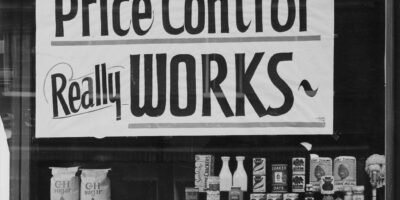Shining a Light on the Fed
Much has been made recently of the plan to audit the Fed (here, here and here). It is a very interesting idea. Given the amount of money ($2 trillion) the Fed sent out in bailout loans, it makes sense that the taxpayers who funded it want to know where the money went. Given the Fed’s ability to influence the market, it also makes sense that someone should know what it is attempting to do, how it is attempting to do it, and what the actual results are. The second part, of course, is the more difficult one.
The economy is too big, too complex, for people to fully understand how influencing one area will affect others. A person cannot even know how something as simple as a single pencil is made. How is it feasible that one can know the proper role of money in the entire system? We can see how attempts to play with the money supply cause distortions that ripple through the market. Signals that are necessary for the flow of the market process are disrupted, altered, causing confusion that leads to crashes such as the financial crisis we recently experienced.
What really happens if Congress looks into the Fed? Would Congress be able to admit that the Federal Reserve System is not saving the nation but creating problems and go from there? Or would members of Congress see such an audit as a good excuse to expand Congressional power deeper into monetary policy than it already is? How many would want to make monetary expansions and contractions a matter of public opinion?
It is, in my opinion, a very scary thought that Congress will determine monetary policy. The economy is a complex system of interworking parts. The disturbances in money ripple through the economy in ways that even those trained in economics cannot fully pin down. And we want to give the power to disturb to a body of people where many have no training whatsoever. It doesn’t sound like a good strategy to me. If Congress gets to decide, through legislation, the difference between good monetary policy and bad, I don’t see how that is going to make things better. The problem is not with who has the power to play with the nation’s economy; the problem is with the power itself.
Real reform would be to limit the power that any entity has over the economy. There are many good arguments (here, here and here) made for removing the Fed altogether. These arguments come off as too radical for large sections of the population. It would certainly end the Fed’s ability to disrupt the economy. But if that idea is going past the limits you would push for, there is at least a solid case made for limiting the discretionary power of the Fed. There are a number of Rules out there to bind the Fed’s hands; the Friedman Rule, the Taylor Rule, the McCallum Rule, etc. None of these are flawless of course, but at least they give some limit to what the Fed can do. Binding the Fed would give people a better idea of what the future holds, allowing them to adjust to whatever rule is in place and make long term plans accordingly.
Tom Duncan
Sound Money Fellow
Atlas Economic Research Foundation









